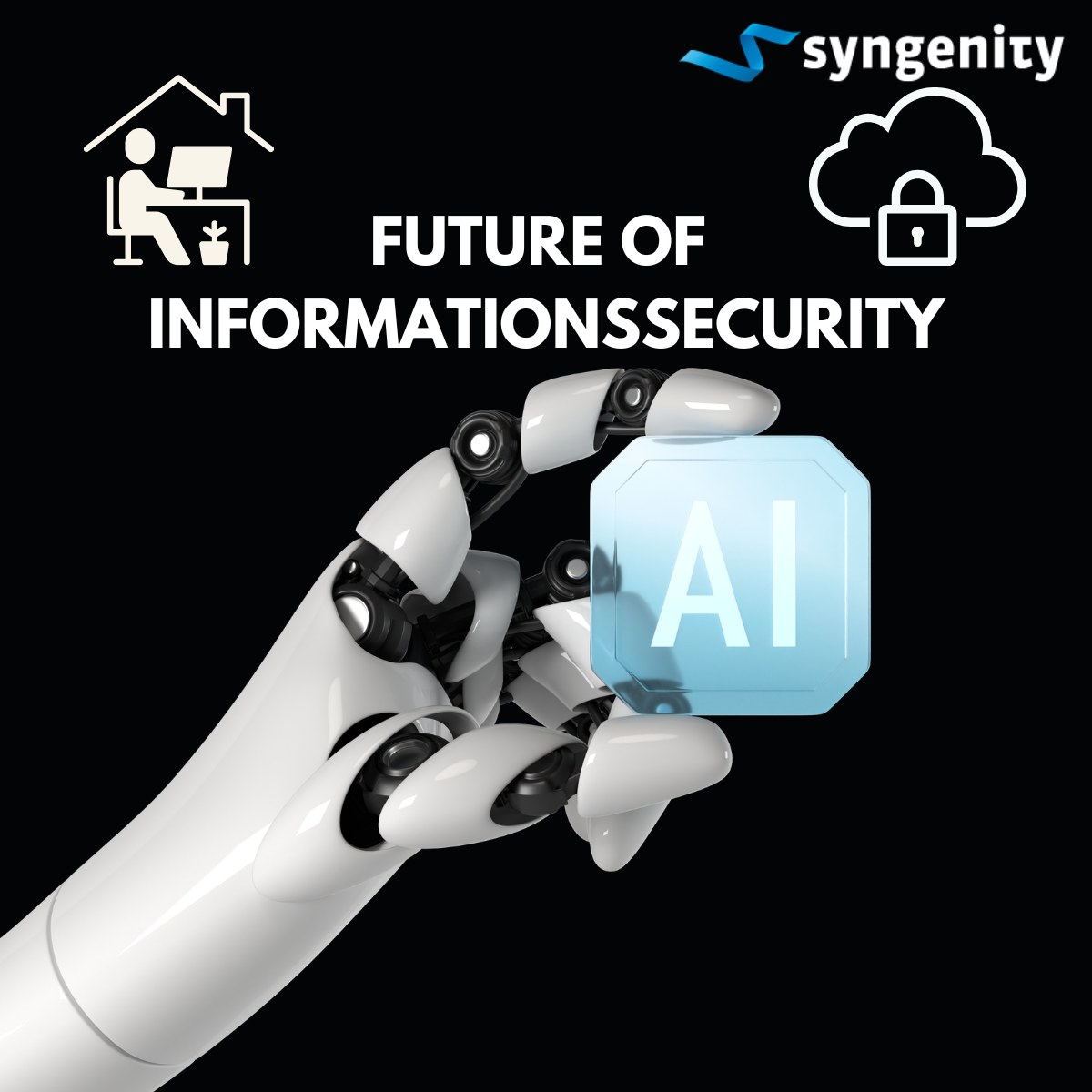The future of information security: trends and developments
The digital world is evolving at a rapid pace – and with it the challenges for information security. More and more companies and individuals are facing the challenge of protecting their digital assets and personal data from increasingly sophisticated cyber threats. Technological innovations open up both opportunities and risks: While on the one hand new tools and processes provide greater security, on the other hand they also increase the attack surface for potential threats. In this article, we take a look at three key trends that are shaping the future of information security and how companies can prepare for them.
1 The role of artificial intelligence in cyber defense
Artificial intelligence (AI) has become one of the most important tools in the field of cyber defense. Companies are increasingly using AI-based solutions to detect and defend against threats at an early stage. AI can analyze vast amounts of data and identify patterns in the threat landscape that would be difficult for the human eye to detect. With the help of machine learning, it is possible to learn from past cyberattacks and prepare for new threats. One advantage of AI in cyber defense is its speed. While human security analysts usually need time to identify and respond to threats, AI can do this in real time. Threat detection systems based on AI can respond in seconds and take automated action, such as blocking suspicious activity or isolating compromised systems. However, the increasing use of AI also brings new challenges. Cybercriminals are also using AI to optimize their attacks and circumvent security measures. So-called “AI crime” is a growing problem, with attackers using AI to personalize phishing emails or automatically detect vulnerabilities in IT systems. Companies are therefore faced with the challenge of constantly developing their AI systems and adapting them to the latest threats.
2 The growing importance of cloud security
Switching to the cloud has become a matter of course for many companies. The cloud offers flexibility, scalability and enables easy access to data from anywhere – a decisive advantage, especially in the age of remote working. However, cloud use also increases the complexity of security requirements. The security of cloud data has become a key issue in information security. Cloud providers are investing heavily in security solutions to prevent data leaks and unauthorized access. However, the responsibility for cloud security does not remain solely with the providers: companies must take proactive security measures themselves, such as encrypting sensitive data and implementing access controls. Using the cloud also requires careful selection of providers, regular security checks and an understanding of the shared responsibility models between cloud providers and users. Particular attention should be paid to the protection of data that is transferred between different cloud environments, for example when using multi-cloud approaches. Here, the implementation of a comprehensive cloud security strategy is essential in order to avoid security gaps and ensure a high level of data protection.
3. remote work: security strategies for mobile working
With the increasing prevalence of remote working, companies have had to rethink their security strategies. Remote working increases the attack surface for cyber criminals, as employees access company resources from different locations and devices. This new way of working poses challenges for IT security management that can hardly be covered by traditional security concepts. Companies must ensure that employees access the company network via secure connections such as virtual private networks (VPNs) and that strong authentication methods such as two-factor authentication are used. Another important point is to raise employee awareness: Phishing attacks aimed at stealing sensitive information have increased during the pandemic. It is therefore crucial to provide training and education to raise awareness of cyber threats. Furthermore, the topic of endpoint security is more important than ever. With many employees working from their own devices, companies should ensure that they are equipped with the necessary security solutions to ward off attacks. Mobile Device Management (MDM) systems can be helpful here to enforce company policies on devices and control security guidelines.
Developing future-proof security strategies
The above trends show that the future of information security holds both opportunities and challenges. Companies that stay up to date and invest in future-proof security strategies can reduce their risks and better protect themselves against cyberattacks. A first step could be to implement a comprehensive security concept that is regularly reviewed and adapted to new threats. Working with external security experts or specialized consulting firms can also provide valuable insights and support. In addition, creating a security culture within the company is crucial: each and every employee should understand the importance of information security and contribute to security. Are you ready for the future of information security? Let’s work together on a future-proof strategy!







